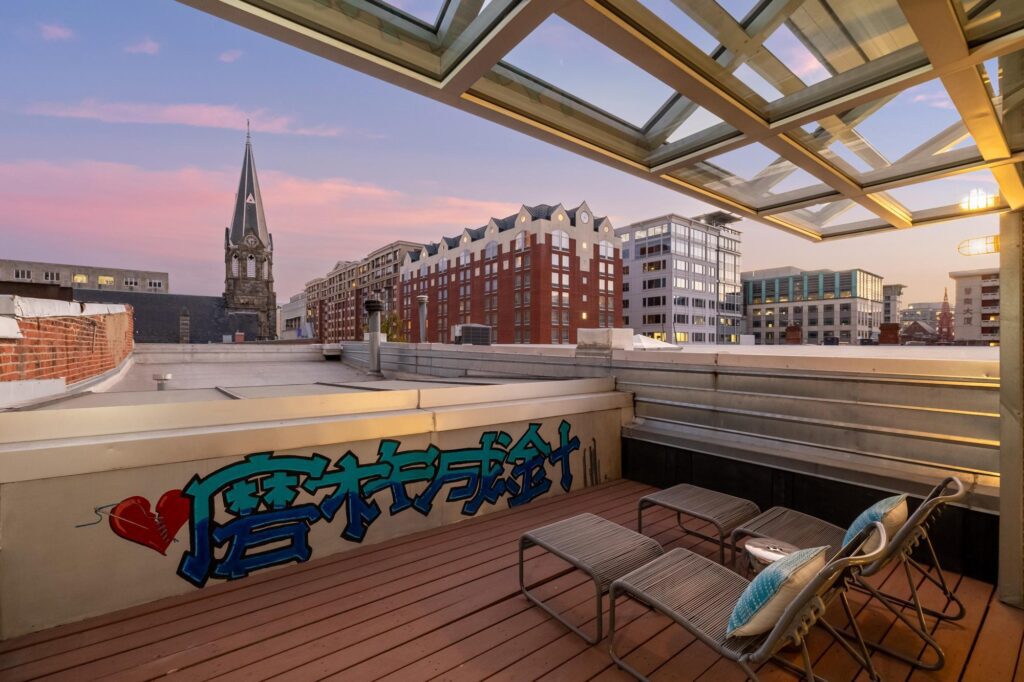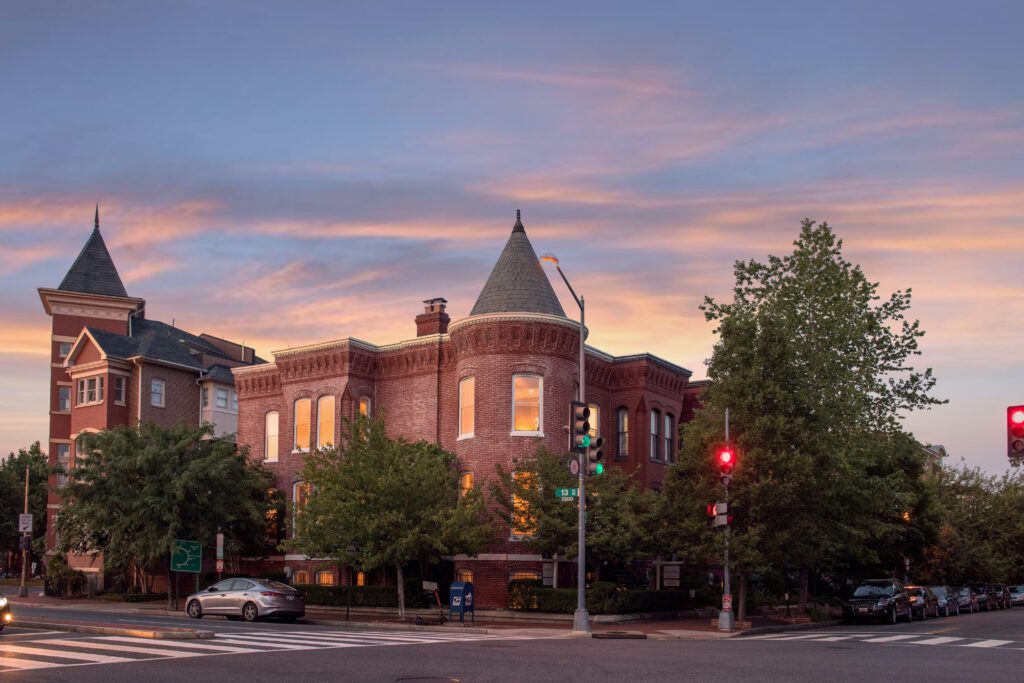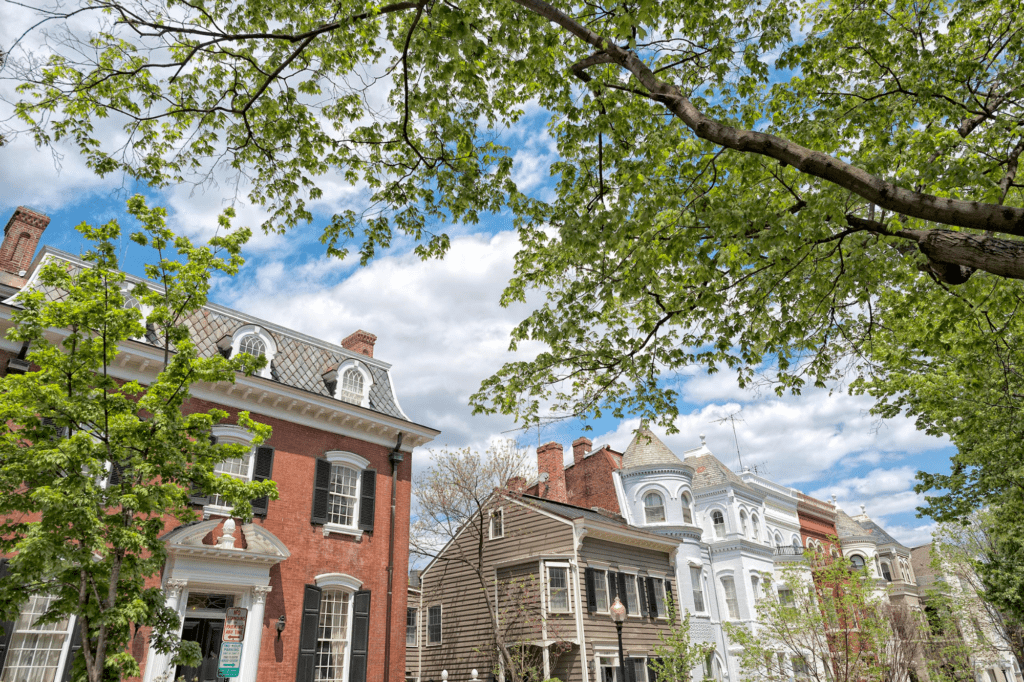
How Do Condo Associations Work In DC?
Buying
As diverse as DC’s housing landscape is, it’s only fitting that it includes various types of associations that govern residential properties across the city. Whether you’re eyeing a sleek condo in Dupont Circle, a co-op in Foggy Bottom, or a single-family home in Brookland, understanding the distinctions between these associations is critical to your home buying journey.
Wondering why the nuance matters? Because each kind of association brings unique structures, responsibilities, and implications for residents. Without further ado, here’s a guide to what you can expect from Condo Associations, Co-op Associations, Homeowners’ Associations (HOAs), and Property Owner Associations (POAs) in DC today.
#1 Condo Associations
What They Are: Condo associations govern condominium buildings or complexes. Once owners purchase individual units, they then share ownership of common areas like hallways, lobbies, and amenities.
How They Work:
– Managed by a board of directors elected by unit owners.
– Funded by monthly condo fees, which cover maintenance, utilities, and reserves for future repairs.
– Enforce rules outlined in bylaws and declarations.
What They Do:
– Maintain shared spaces (e.g., elevators, landscaping).
– Manage amenities (e.g., gyms, pools, rooftop decks).
– Handle repairs and major improvements to the building.
Pros:
– Reduced personal responsibility for maintenance.
– Access to shared amenities.
– Equity in ownership of your unit.
Cons:
– Monthly fees can be high, especially in buildings offering luxury amenities.
– Restrictions on renovations or subletting.
– Risk of special assessments for unexpected repairs.
Knowledge is power…especially in the world of real estate. Craving more lessons on buying and selling in DC? Delve into these posts next:
- Do I Need To Sign A Buyer-Broker Agreement When Buying a Home In DC?
- How To Appeal Your Property Taxes In DC
- What To Know About DC’s New Mansion Tax
#2 Co-op Associations
What They Are: In a co-op, you don’t buy a unit outright. Instead, you purchase shares in a corporation that owns the entire building, shares that entitle you to a proprietary lease for your unit.
How They Work:
– Run by a board of shareholders who are typically more involved than a condo board.
– Monthly fees include mortgage payments on the building, property taxes, and maintenance.
– Approval from the board is often required for significant decisions, including selling or subletting your unit.
What They Do:
– Oversee building maintenance and financial obligations.
– Enforce policies, which are often stricter than those of condo associations.
– Manage collective costs, including taxes and underlying mortgages.
Pros:
– Often more affordable upfront compared to condos.
– Strong sense of community.
– Maintenance costs are typically bundled into fees.
Cons:
– Stricter rules and less personal autonomy.
– Financing can be more complicated due to the collective mortgage.
– Potential difficulty in selling or subletting.
#3 Homeowners’ Associations (HOAs)
What They Are: HOAs regulate planned communities, townhouses, or single-family homes, and membership is mandatory for homeowners within the development.
How They Work:
– Governed by a board of homeowners elected by residents.
– Funded by HOA fees, which may cover landscaping, security, or shared amenities like parks.
– Enforce covenants, conditions, and restrictions (CC&Rs) that regulate exterior modifications and community rules.
What They Do:
– Maintain shared spaces like parks or community centers.
– Enforce neighborhood rules, including aesthetics and noise control.
– Oversee amenities such as pools, tennis courts, or playgrounds.
Pros:
– Maintains property values through uniform rules.
– Provides shared amenities and a cohesive community feel.
– Offers a structured governance model for neighborhood disputes.
Cons:
– Rules can feel overly restrictive (e.g., bans on certain paint colors or landscaping choices).
– Fees can add up, especially for high-end communities.
– Disputes with the HOA board can become contentious.
Thinking about buying a condo? Explore these related resources.
- Should You Buy A Condo In An Older Building?
- Best Neighborhoods In DC For Buying A Condo
- Condos Vs Co-Ops: What’s The Difference?
#4 Property Owner Associations (POAs)
What They Are: POAs are similar to HOAs but may include a broader range of properties, such as commercial or mixed-use developments. Typically, they often oversee larger communities or master-planned areas.
How They Work:
– Managed by a board or committee that may include residential and commercial property owners.
– Funded by association dues, which cover community-wide services and amenities.
– Oversee a mix of residential and commercial rules.
What They Do:
– Manage infrastructure like roads, sidewalks, and landscaping.
– Oversee large-scale amenities like golf courses or recreational facilities.
– Coordinate with municipal services for security and utilities.
Pros:
– Comprehensive management of large, diverse communities.
– Enhanced amenities and infrastructure.
– Offers cohesion in mixed-use developments.
Cons:
– Dues can be higher than typical HOA fees.
– Potential conflicts between residential and commercial interests.
– Rules may feel impersonal in large communities.
Finding the Right Fit
When choosing a property in DC, consider these factors…
Lifestyle: Do you value personal autonomy, or are you okay with strict rules for the sake of uniformity?
Budget: Assess how fees and potential special assessments fit into your financial plans.
Community: Are you seeking a close-knit feel (co-op) or a more independent experience (condo or HOA)?
Amenities: Prioritize amenities that match your needs — co-ops and condos may offer more in urban areas, while HOAs and POAs often shine in suburban settings.
At the end of the day, each type of association has its own strengths and challenges, and understanding their differences will help you find the perfect balance of autonomy, amenities, and shared responsibilities for your new home in DC.
Curious about whether condo life is right for you? We can help! Contact us directly by calling 202.280.2060 or emailing jsmira@jennsmira.com today!



